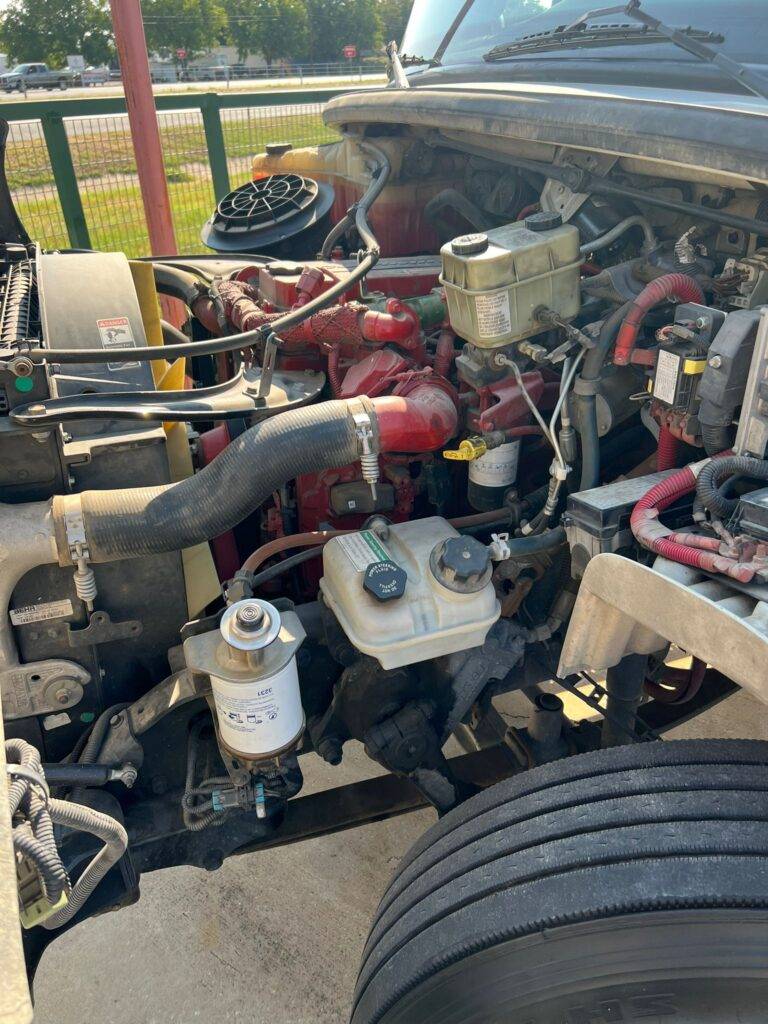In today’s modern world, where traffic safety is of utmost importance, the utilization of advanced technologies and equipment has become a key focus in ensuring the well-being of motorists and workers alike. One such integral component in enhancing roadway safety is the advanced blade truck mounted attenuator (TMA). This article dives into the pivotal role that advanced blade TMAs play in safeguarding lives and preventing collisions on highways and work zones via TMA Maintenance Solutions.

What is the Role of an Advanced Blade Truck Mounted Attenuator in Roadway Safety?
Advanced blade truck mounted attenuators (TMAs) are specifically designed to reduce the impact of crashes, thereby minimizing the risk of fatalities and injuries on the roads. These essential safety devices act as crash cushions, absorbing the energy of an impacting vehicle and providing a protective barrier for both highway workers and motorists. TMAs are commonly used in highway construction zones due to their effectiveness in mitigating the consequences of collisions.
The advanced blade TMA is distinct in its design, offering cutting-edge safety features that are engineered to optimize impact absorption. By providing a sturdy yet energy-dissipating barrier, advanced blade TMAs reduce the severity of collisions and ensure safer work zones for all.
These attenuators are crucial for maintaining road safety, especially in high-risk areas. They not only protect lives but also minimize disruptions caused by accidents, ensuring smoother traffic flow in and around work zones.
How Do Advanced Blade Truck Mounted Attenuators Enhance Highway Safety?
An advanced blade truck mounted attenuator is unique due to its specialized design and construction. The advanced blade TMA is highly effective in collision prevention, as it absorbs the impact of a crashing vehicle, dissipating the kinetic energy and minimizing the damage caused. The incorporation of state-of-the-art materials in advanced blade TMA design further enhances its performance in safeguarding lives and preventing severe accidents.
By leveraging modern technology, advanced blade TMAs provide a reliable solution for minimizing risks in high-traffic and high-risk areas. Their ability to protect both workers and drivers makes them indispensable for modern roadway safety.
These attenuators are also equipped with innovative systems that allow for quick deployment and retraction, making them versatile tools in dynamic work zone environments.
Key Features of Advanced Blade Truck Mounted Attenuators
One of the primary functions of an advanced blade TMA is to absorb energy upon impact, thereby reducing the force exerted on both the impacting vehicle and the work crew present in the vicinity. Advanced blade TMAs are strategically positioned to maximize their effectiveness, ensuring that they provide optimal protection during crashes.
The robust construction of advanced blade TMAs includes high-strength materials designed to withstand substantial impact forces. This durability ensures that the attenuator remains functional even under repeated usage, making it a cost-effective and reliable choice for highway safety.
Additionally, advanced blade TMAs feature high-visibility markings, LED lighting, and reflective surfaces to enhance their visibility, especially during nighttime operations. These features further reduce the likelihood of accidents and improve overall work zone safety.
Why Are Advanced Blade Truck Mounted Attenuators Essential in Work Zone Safety?
Advanced blade TMAs serve as reliable crash cushions in work zones, acting as a protective shield for highway workers and drivers navigating through construction areas. These safety devices play a vital role in preventing collisions on highways by absorbing the impact of errant vehicles and minimizing the potential for fatalities. The importance of MASH-certified TMAs in work zone safety regulations cannot be understated, as these certifications ensure that the attenuators meet stringent safety standards.
The strategic deployment of advanced blade TMAs in high-risk areas not only protects lives but also ensures smoother traffic flow, reducing delays caused by accidents and enhancing overall efficiency in construction zones.
Moreover, these TMAs are designed to withstand extreme weather conditions, making them suitable for deployment in various environments and ensuring year-round reliability.
How Have Advanced Blade Truck Mounted Attenuators Revolutionized Roadway Safety Standards?
Advancements in advanced blade TMA technology have led to significant improvements in highway safety standards. These innovative attenuators adhere to stringent crash testing requirements for highway construction, ensuring that they can effectively protect workers and drivers in the event of an accident. The future prospects of using advanced blade TMAs in enhancing roadway safety measures are promising, with continuous innovations paving the way for even greater safety enhancements on our roads.
Moreover, advanced blade TMAs contribute to the reduction of economic losses associated with road accidents. By preventing severe collisions and minimizing property damage, these devices offer a cost-effective solution for governments and construction companies.




